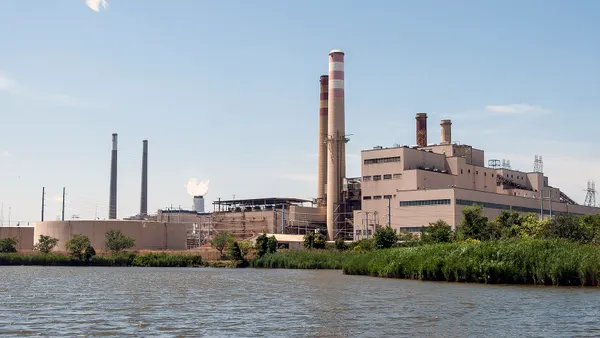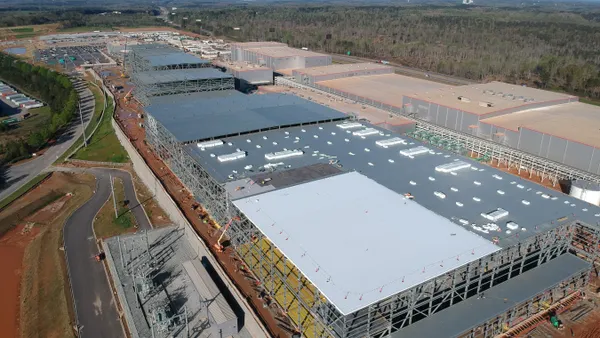Dive Brief:
- Four lawmakers from Rhode Island have sent a letter to the Federal Energy Regulatory Commission calling for changes in market pricing that would allow state goals to be incorporated into regional markets.
- The lawmakers said they are concerned existing energy ISO New England markets are not properly pricing carbon-free energy. but the group also praised the commission's "openness to integrating New England states’ climate policies into the region’s energy markets," pointing to FERC's decision to order directing to incorporate distributed generation into its installed capacity requirement calculations.
- The delegation called for improved environmental dispatch algorithms and the incorporation of a shadow carbon price into energy price formulation.
Dive Insight:
While New England has made steps in integrating renewables and slashing carbon emissions through renewable portfolio standards and the Regional Greenhouse Gas Initiative (RGGI), some lawmakers don't think those programs go far enough.
Rhode Island's four Democratic Senators and Representatives have called on federal regulators to incorporate a shadow carbon price into the region's energy markets, in addition to other measures they say would better reflect state goals and policies.
“It is critical that a strategy be developed to integrate state climate and energy policies into ISO-NE market rules," the delegation wrote. "We understand that discussions on this topic are beginning to take place in New England and we applaud these efforts. As these discussions move forward, FERC and ISO-NE should also consider how the effects of carbon pollution can be integrated into the FCM and energy market pricing schemes."
The letter was sent to the commission by Sens. Jack Reed and Sheldon Whitehouse and Reps Jim Langevin and David Cicilline.
Specifically, in addition to the shadow price of carbon in energy markets, the lawmakers want to see improved systems for environmental dispatch that "appropriately value the benefits of carbon free generation," and improved metrics in the forward capacity auctions that would also better value clean energy.
ISO-NE's CEO told Utility Dive in an earlier interview that the ISO over the past decade began evaluating reformation of its capacity market rules to incorporate more renewables to ease the transition from its reliance on fossil fuels—specifically gas and coal—to clean energy.














